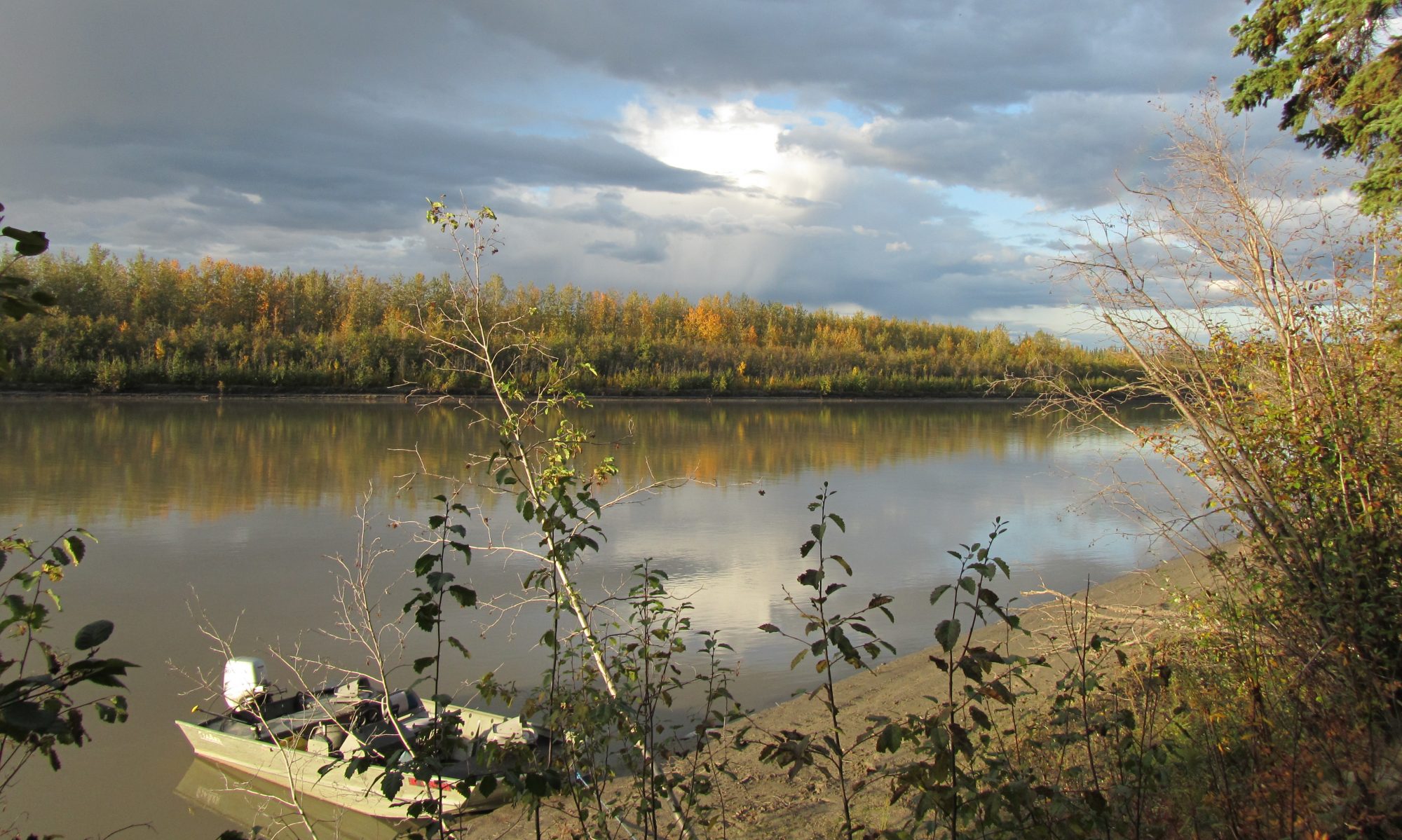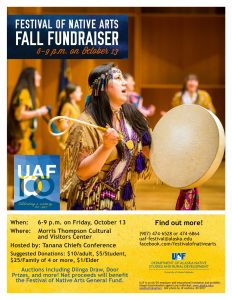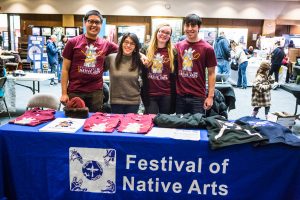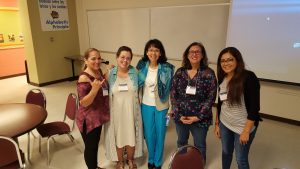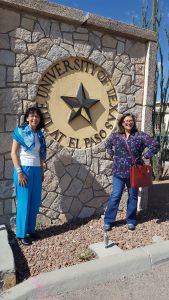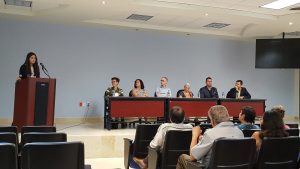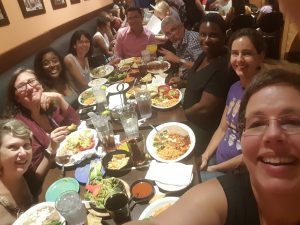I think that sometimes we listen better when we have to struggle to understand. I know that for myself, one of the reasons I am drawn to cross-cultural life is that combination of sharing a perspective, but coming at it from very different traditions, and having to focus intently on creating shared understanding and meaning. I had an especially powerful experience in this kind of communicating at the Ethnography and Education Symposium in El Paso.
As mentioned previously (see here for our first post and here for Professor Pat’s post on her experiences) In September I went with professors Diane Benson and Pat Sekaquaptewa to the 14th Inter-American Symposium on Ethnography and Education in El Paso, Texas and across the border in Cuidad Juarez, Mexico. One of the unique aspects of this symposium is that it is conducted in English, Spanish, and Portuguese. Spanish was probably the most common language at the conference; most presentations were in Spanish and the majority of participants spoke Spanish and/or were bilingual or trilingual. While I am fairly proficient in English (we hope!), I know nothing of Spanish or Portuguese so depended on the conference organizers and the kindness of fellow participants to translate.
This worked out wonderfully! In fact, I felt that I sometimes got more out of the Spanish and Portuguese presentations than the English presentations because I was focused so intently on understanding. I found that I could understand some of the Spanish and Portuguese, especially if they were talking about familiar issues and ideas, which they usually were. I could understand the written word a little better and many presenters included the text of their presentations in their PowerPoint slides. I know text heavy PowerPoints are not recommended, but in this case, they were incredibly helpful. Finally, conference organizers and fellow participants were willing to whisper translations to me and other non-Spanish or Portuguese-speaking people, providing a triangulated learning environment where I listened to the spoken word, read the written word, and listened to the translation simultaneously. It was an intensely invigorating learning environment. Indeed, throughout the symposium, I reflected that, while people didn’t speak my language, they spoke my language: la pedagogÃa crÃtica, la educacÃon holÃstica, descolonizar, epistemologÃa, la autobiographfÃa critÃca, la indignación, el amor…this is the language of my heart.
One of the unexpected themes of the conference was the role of “love’ in education and crossing and living in border spaces. In her keynote entitled “Lengua, aprendizaje y amor: Lo que los jóvenes transculturales, transnacionales y translingüÃsticos nos pueden enseñar‘ (Language, learning and love: what young transcultural, transnational and translinguistics can teach us), Professor Marjorie Faulstich Orellana discussed her work with children and the role of love as a motivator for learning. She looked at the ways borders, physical, cultural, and linguistic, are built and patrolled and how such boundaries interfere with our ability to enter relationships with openness and to gain understanding. She spoke of the artificial divide between the heart and the mind and the ways academia and other institutions privilege the brain over our hearts and our bodies. She spoke of bringing “love,’ that foundation of human connection, back into what we do and how we do it.
Her discussion ignited a conversation about power, positionality, and the appropriation of discourse over the remainder of the symposium. How can and why should people outside of the power structure respond with love? How can we open up spaces for love in academic settings and how do we protect people for whom the vulnerability of love is a very real risk to their lives and careers? What can you do when, as in Argentina, the government appropriates the discourse of love and uses it against you?
These questions and more wended their way through the conference and continue even now. Just today, Professor Orellana sent a post conference reflection on her talk and experience and shared blog posts where she continues to explore the concept of love in education. I recommend you check out her posts “Talking about love in a time of vitriole” and “Why love? Some reflections on splitting and healing.”
As for me, I’ve been thinking about the role of love in the research of my students. How can I help them center love in their research? How can I help them articulate their love in a way that honors their cultures and experiences and yet meets their goals within the academy as well? How can I create a space in the academy for them to take the risks necessary to not just acknowledge their love, but openly ground their research in love? Every semester I hope to make the border spaces in my classes broader; to allow my students to re-contextualize knowledge and build their own path to a decolonized education. This brings me back to that cross-cultural life, that life on the border where we struggle to create shared understanding and meaning. That border space we occupy together.
